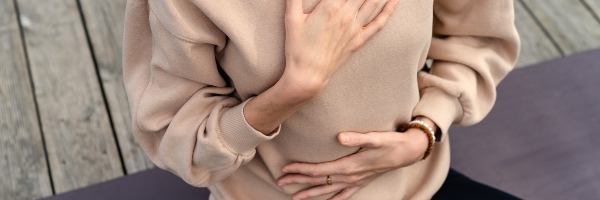What is health anxiety?
Health anxiety, related to obsessive compulsive disorder (OCD), is a common condition thought to affect 4% to 5% of people. However, the number may be closer to 12%, as experts believe it’s an underreported condition. Being concerned about your health from time to time is normal, but this is different to being frequently worried or constantly anxious about getting ill. If these feelings begin to take over your life – causing feelings of anxiety and/or depression – then it’s important to seek professional help, as well as trying self-care to help your symptoms gradually subside.
What can trigger health anxiety?
The exact causes of health anxiety aren’t completely clear, although there are a few recognised factors that can contribute to such thoughts and feelings:
Family
If you have family members who are either constantly worried about their own health, or are overly concerned about your wellbeing, you might be more likely to develop health anxiety.
Beliefs
Experiencing bodily sensations that aren’t normal to you might be difficult to tolerate, which could lead to the misinterpretation that any sensation is serious. In which case, you might search for any evidence that confirms you have a particular disease.
Previous experiences
If you’ve experienced a serious illness in childhood, any physical sensations you feel might be more frightening to you, reminding you of the past.
When should you see a GP?
Some symptoms you experience could be related to certain health conditions, so it’s important that you book a doctor’s appointment to undergo a thorough assessment. Although this can help to put your mind at ease, it can be difficult to determine the best way forward with your GP. Most people with health anxiety want many investigations to check out the possibilities of serious diseases. A GP, on the other hand, may be reluctant to perform investigations they consider unnecessary, if they believe anxiety is the root of the problem rather than a physical condition. Indeed, they may think that continuing to investigate may reinforce health anxiety.
To avoid this, have an honest conversation with your GP, and acknowledge whether your concerns could be rooted in anxiety. If your GP believes that you have an anxiety disorder, they might refer you to a mental health professional. Through compromise and joint decision-making, the care you receive will be more personalised – making tackling the root cause much easier.

Health anxiety self-help
If you have had confirmation from your GP that you’re fit and healthy but are still bothered by health anxiety, there are various self-help techniques you could try:
Keep a journal
Keep a record of how frequently you check your body, seek reassurance, or search for health information on the internet. Challenge yourself by attempting to gradually reduce how often you do each of these things, tracking your progress as you go.
Keep yourself occupied
Often, health anxiety can lead to avoiding activities that you once loved. Instead, try to gradually reconnect with old hobbies – such as sports – as well as socialising with friends and family when you can. In instances where you have an urge to check your body, replace this with something else – like calling a friend or heading out for a walk.
Try to relax
There are various breathing exercises you can follow to help calm anxiety, along with relaxation exercises. Try a variety of techniques to see which one works best for you.

Remember that you are not your thoughts
It can be helpful to pause and consider your thoughts a little more deeply, reminding yourself that these don’t define you. Your thoughts come and go, and they are simply creating a reality for you in the moment. It’s easy to get caught up in an anxious thought, but by considering it as an illusion and preventing yourself from giving it attention, the thought – along with the associated feeling – will pass with time. If health anxiety returns, you can apply the same technique, and with practice you may find that the more you consider this, the more you’re able to separate yourself from your thoughts.
Health anxiety treatment
If, after following self-help methods, your health anxiety doesn’t appear to be subsiding, your GP may refer you for talking treatments – such as cognitive behavioural therapy (CBT) – or medication to treat your anxiety. You’ll be encouraged not to use tranquillisers and drugs, such as alcohol and marijuana, as these can make anxiety worse.
Take away
Although health anxiety is common, it can present itself differently from person to person. If you’re struggling with health anxiety, to the point where it’s beginning to take over your life, it’s strongly encouraged that you seek further information and guidance from your GP, who can make a formal diagnosis. Alongside this, try to share your thoughts and feelings with your support network – whether that consists of friends or family – to help rationalise your feelings, or share these with a trained mental health professional. As distressing as health anxiety may be, there are a variety of techniques and treatments you may be advised to help your symptoms gradually subside.
Another useful self-help technique can be downloading the Evergreen Life app and taking our Sense of Wellbeing Check. This covers a wide range of health-related topics – including questions about anxiety and mental health. Based on your answers, you will be given actionable steps you can take towards feeling better.
- Drinkaware. (2022). Alcohol and anxiety. Drinkaware.
- Harvard Health Publishing. Harvard Medical School. (2020). Always worried about your health? You may be dealing with health anxiety disorder. Harvard Health Publishing. Harvard Medical School.
- Keith DR, Hart CL, McNeil MP, Silver R, Goodwin RD. Frequent marijuana use, binge drinking and mental health problems among undergraduates. Am J Addict. 2015 Sep;24(6):499-506. doi: 10.1111/ajad.12201. Epub 2015 May 1. PMID: 25930151; PMCID: PMC4551615.
- Lenze EJ, Wetherell JL. A lifespan view of anxiety disorders. Dialogues Clin Neurosci. 2011;13(4):381-99. doi: 10.31887/DCNS.2011.13.4/elenze. PMID: 22275845; PMCID: PMC3263387.
- Mayo Clinic. (2021). Illness anxiety disorder. Mayo Clinic.
- Mind. (2021). Relaxation exercises. Mind.
- NHS UK. (2022). Breathing exercises for stress. NHS UK.
- NHS UK. (2019). Cognitive Behavioural Therapy. NHS UK.
- NHS UK. (2020). Health anxiety. NHS UK.
- NHS UK. (2018). Treatment – Generalised anxiety disorder in adults. NHS UK.





